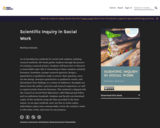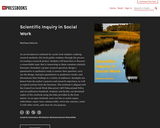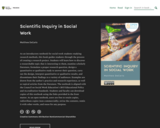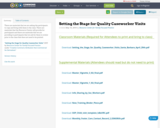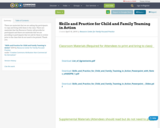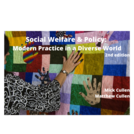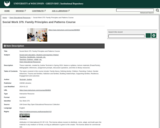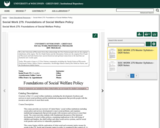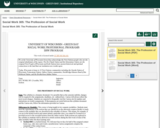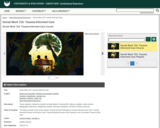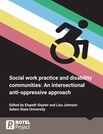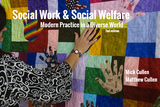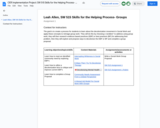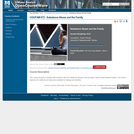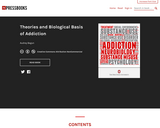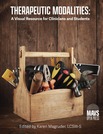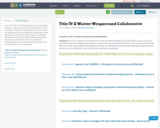Short Description:
Theories and Biological Basis of Substance Misuse Part 1 (2019) is an OER coursebook applying a biopsychosocial lens for educating an interdisciplinary professional workforce to identify, understand, and address problems related to substance use, substance misuse, and substance use disorders. These materials were developed using a variety of published sources and online materials (NIH, NIAAA, NIDA, SAMHSA, WHO) and the Routledge Handbook of Social Work and Addictive Behavior (2020), edited by A.L. Begun and M.M. Murray. A total of 6 modules are presented in this Part 1 coursebook; an additional 7 modules specific to different types of substances, co-occurring problems, prescription and over-the-counter substance misuse, and pharmacotherapy strategies appear in Theories and Biological Basis of Substance Misuse Part 2 (2020). Each module begins with a brief introduction of the topic and list of reading objectives and concludes with a Module Summary, a linked “Key Terms” section, and full reference citations list. Content for each module is organized into a set of chapters, some of which involve linking to outside reading resources, and various “Stop and Think” interactive activities. The coursebook can be used interactively in the online environment, or can be downloaded as pdf files but the learning activities will no longer be interactive. The coursebook contents are relevant for social work, psychology, sociology, criminal justice, medicine/nursing/allied health, education, and other professional or disciplinary education purposes. An example course syllabus for use in social work education is presented as an Appendix. Modules presented in Theories and Biological Basis of Substance Misuse Part 1 include: Module 1—Introduction; Module 2—Key Definitions, Diagnostic Criteria, Classification of Substances, & Trending Topics; Module 3—Biological Models and Substance Misuse, Pharmacokinetics & Psychopharmacology Principles; Module 4—Psychological Models of Substance Misuse; Module 5—Social Context & Physical Environment Models of Substance Misuse; Module 6—Theory Integration, Transtheoretical Model, and Vulnerability/Risk/Resilience/Protective Factors in Substance Misuse.
Long Description:
Theories and Biological Basis of Substance Misuse Part 1 (2019) is an OER coursebook applying a biopsychosocial lens for educating an interdisciplinary professional workforce to identify, understand, and address problems related to substance use, substance misuse, and substance use disorders. These materials were developed using a variety of published sources and online materials, including resources produced by U.S. National Institutes of Health (NIH), National Institute on Alcoholism and Alcohol Abuse (NIAAA), National Institute on Drug Abuse (NIDA), and Substance Abuse and Mental Health Services Administration (SAMHSA), as well as the World Health Organization (WHO) and the Routledge Handbook of Social Work and Addictive Behavior (2020), edited by A.L. Begun and M.M. Murray. A total of 6 modules are presented in this Part 1 coursebook; an additional 7 modules specific to different types of substances, co-occurring problems, prescription and over-the-counter substance misuse, and pharmacotherapy strategies appear in Theories and Biological Basis of Substance Misuse Part 2 (2020).
Each module begins with a brief introduction of the topic and list of reading objectives and concludes with a Module Summary, a linked “Key Terms” section, and full reference citations list. Content for each module is organized into a set of chapters, some of which involve linking to outside reading resources, and various “Stop and Think” interactive activities. The coursebook can be used interactively in the online environment or can be downloaded as pdf files but the learning activities will no longer be interactive. The coursebook contents are relevant for social work, psychology, sociology, criminal justice, medicine/nursing/allied health, education, and other professional or disciplinary education purposes. An example course syllabus for use in social work education is presented as an Appendix.
The modules presented in Theories and Biological Basis of Substance Misuse Part 1 include:
Module 1—Introduction Ch. 1: Background Facts & Figures Ch. 2: Brief History of Substance Use & Policy Responses in the U.S. Ch. 3: Considering the Language We Use
Module 2—Key Definitions, Diagnostic Criteria, Classification of Substances, & Trending Topics Ch. 1: Key Definitions & Diagnostic Criteria Ch. 2: Classification Systems for Different Types of Substances Ch. 3: Trending Topics
Module 3—Biological Models and Substance Misuse, Pharmacokinetics & Psychopharmacology Principles Ch. 1: Genetic Influences Ch. 2: Neurobiology & Substance Use Ch. 3: Basic Pharmacokinetic and Psychopharmacology Principles
Module 4—Psychological Models of Substance Misuse Ch. 1: Cognitive & Learning Theories Ch. 2: Developmental Theories Ch. 3: Theories of the Psyche Ch. 4: Expectancies & Cravings
Module 5—Social Context & Physical Environment Models of Substance Misuse Ch. 1: Social Contexts & Physical Environments Ch. 2: Family as a Social Context Ch. 3: Peer Groups as Social Context
Module 6—Theory Integration, Transtheoretical Model, and Vulnerability/Risk/Resilience/Protective Factors in Substance Misuse Ch. 1: Theory Integration and Prevention Ch. 2: Prevention & the Continuum of Care Ch. 3: Theory Integration in the Transtheoretical Model of Behavioral Change
Word Count: 60656
Included H5P activities: 11
(Note: This resource's metadata has been created automatically by reformatting and/or combining the information that the author initially provided as part of a bulk import process.)

